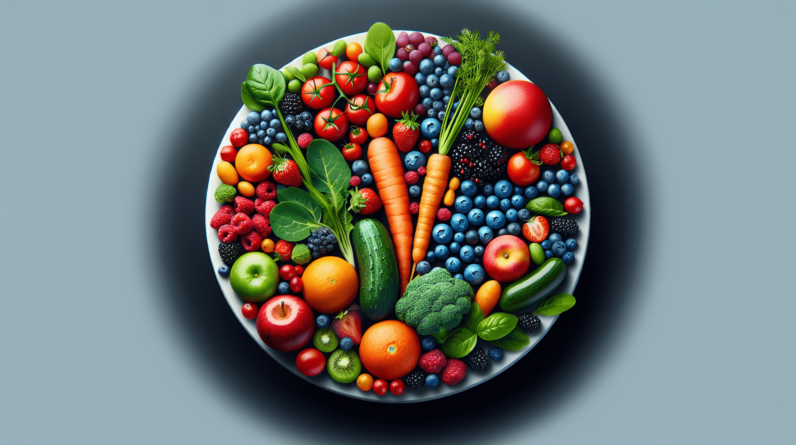
Most of us are aware of the importance of maintaining a healthy diet for overall well-being. However, did you know that proper nutrition can also play a crucial role in prostate health? In this article, we will delve into the specific nutrients and dietary choices that can promote a healthy prostate and help prevent conditions such as prostate cancer. Join us as we explore the relationship between nutrition and prostate health.
Understanding Prostate Health
Before we discuss the role of nutrition in maintaining a healthy prostate, let’s first understand the basics of prostate health. The prostate is a small gland located below the bladder in men. It plays a vital role in the reproductive system by producing the fluid that nourishes and transports sperm.
What is Prostate Cancer?
Prostate cancer is the most common cancer in men, aside from skin cancer. It occurs when cells in the prostate gland grow out of control. While the exact cause of prostate cancer is unknown, factors such as age, genetics, and lifestyle choices can increase the risk of developing the disease.
The Link Between Nutrition and Prostate Health
Research has shown that the foods we eat can have a significant impact on our prostate health. A diet rich in certain nutrients and antioxidants can help reduce inflammation, support proper hormone balance, and protect against cellular damage in the prostate gland. By making mindful dietary choices, we can support a healthy prostate and potentially lower the risk of developing prostate issues, including cancer.
Antioxidants and Phytonutrients
Antioxidants and phytonutrients are compounds found in plant-based foods that help protect cells from damage caused by free radicals. Free radicals are unstable molecules that can lead to inflammation and oxidative stress in the body. Consuming a variety of colorful fruits and vegetables rich in antioxidants and phytonutrients can help combat this damage and promote prostate health.
Healthy Fats
Incorporating healthy fats into our diet is essential for prostate health. Omega-3 fatty acids, found in fatty fish, flaxseeds, and walnuts, have anti-inflammatory properties that can reduce inflammation in the prostate gland. On the other hand, limiting saturated fats and trans fats found in processed foods and red meat is crucial, as excessive consumption of these fats has been linked to an increased risk of prostate cancer.
Vitamin D
Vitamin D is a crucial nutrient for overall health, including prostate health. Research suggests that adequate levels of vitamin D may help lower the risk of developing prostate cancer. Sunlight is a natural source of vitamin D, but it can also be found in foods such as fatty fish, egg yolks, and fortified dairy products. For individuals with low levels of vitamin D, a supplement may be recommended to ensure optimal levels.
The Best Foods for a Healthy Prostate
Now that we understand the importance of nutrition in prostate health, let’s explore some of the best foods to incorporate into our diet to support a healthy prostate.
Fish
Fatty fish such as salmon, mackerel, and sardines are rich in omega-3 fatty acids, which have been shown to reduce inflammation and support prostate health. Aim to include fatty fish in your diet at least two to three times per week to reap the benefits of these healthy fats.
Tomatoes
Tomatoes contain a powerful antioxidant called lycopene, which has been linked to a reduced risk of prostate cancer. Cooking tomatoes can enhance the absorption of lycopene, so enjoy them in sauces, soups, and stews for maximum benefits.
Cruciferous Vegetables
Cruciferous vegetables such as broccoli, cauliflower, and Brussels sprouts are packed with phytonutrients that help protect against cancer. These vegetables also contain sulforaphane, a compound that has been shown to inhibit the growth of prostate cancer cells.
Berries
Berries such as blueberries, strawberries, and raspberries are rich in antioxidants that can help reduce inflammation and oxidative stress in the body. Add a handful of berries to your breakfast or snack for a delicious and nutritious boost.
Nuts and Seeds
Nuts and seeds are excellent sources of healthy fats, antioxidants, and essential nutrients for prostate health. Almonds, walnuts, flaxseeds, and chia seeds are particularly beneficial for their omega-3 fatty acids and fiber content.
Dietary Recommendations for a Healthy Prostate
In addition to incorporating prostate-friendly foods into our diet, there are specific dietary recommendations that can further support prostate health and lower the risk of prostate issues.
Limit Red Meat Consumption
High intake of red and processed meats has been linked to an increased risk of prostate cancer. Limiting red meat consumption and opting for lean protein sources such as poultry, fish, and plant-based proteins can help reduce this risk.
Maintain a Healthy Weight
Obesity and excess body fat have been associated with a higher risk of prostate cancer. Maintaining a healthy weight through a balanced diet and regular physical activity can help lower this risk and support overall prostate health.
Stay Hydrated
Staying hydrated is essential for prostate health. Drinking an adequate amount of water throughout the day helps flush out toxins and waste products from the body, preventing issues such as urinary tract infections and promoting prostate health.
Limit Alcohol and Caffeine Intake
Excessive consumption of alcohol and caffeine can irritate the bladder and prostate gland, leading to urinary symptoms and inflammation. Limiting these substances and opting for non-alcoholic and decaffeinated beverages can help maintain prostate health.
Conclusion
In conclusion, proper nutrition plays a vital role in maintaining a healthy prostate and reducing the risk of prostate issues, including cancer. By incorporating nutrient-rich foods such as fatty fish, tomatoes, cruciferous vegetables, berries, nuts, and seeds into our diet, we can support prostate health and overall well-being. Additionally, following dietary recommendations such as limiting red meat consumption, maintaining a healthy weight, staying hydrated, and moderating alcohol and caffeine intake can further protect the prostate gland. Remember, a balanced diet, along with a healthy lifestyle, is key to promoting prostate health and preventing prostate-related conditions. Let’s make informed dietary choices today for a healthier tomorrow.






